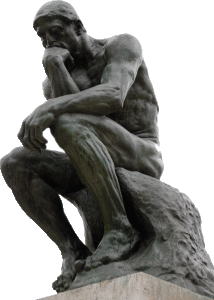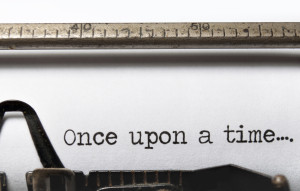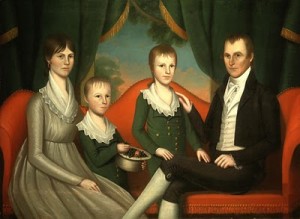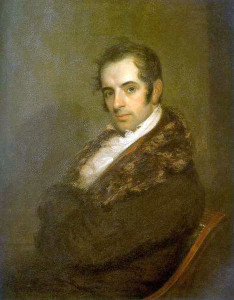 Welcome to part 1 of my recap of the 2014 Society for Historians of the Early American Republic conference.
The conference took place in Philadelphia, Pennsylvania between July 17 and July 20.
Welcome to part 1 of my recap of the 2014 Society for Historians of the Early American Republic conference.
The conference took place in Philadelphia, Pennsylvania between July 17 and July 20.
“Representing and Resisting Violence: African Americans, North African “Pirates,” and Violence in the Early Republic”
Chair: James Brewer Stewart (Macalaster College)
Panelists:
Kathleen Kennedy (Missouri State University), “Trauma and Narratives of Slavery”
Kelly A. Ryan (Indiana University Southeast), “Seeking Justice: African American Resistance to Violence in the Northeast, 1780-1830”
Jason Zeledon (University of California-Santa Barbara), “American Manhood and the Barbary Pirates: Gender, Sodomy, and Women’s Rights during the Algerian Captivity Crisis”
Comment: Nikki Taylor (Texas Southern University, Houston)
Panel Summary
"Trauma and Narratives of Slavery"
Kathleen Kennedy explored how historians can use the narratives of slave men to explore the psychological trauma of slavery.
Kennedy began her paper with the story of Henry Bibb, a former slave who discussed being the father of slaves. Bibb fathered a daughter and swears that it will be the only child he ever fathers into slavery.
For Bibb the word “father” was “obnoxious.” Early American men defined their masculinity by their ability to provide for and protect their wives and children. Slave husbands and fathers could not protect their families because they had no rights over them; they had to watch while overseers and masters abused their wives and children.
 Kennedy contends that historians can use statements of grief by slave fathers to better understand slave grief and the violence of slavery. However, Kennedy warns that African-American writers did not always bear all in their narratives.
Kennedy contends that historians can use statements of grief by slave fathers to better understand slave grief and the violence of slavery. However, Kennedy warns that African-American writers did not always bear all in their narratives.
Former slaves like Henry “Box” Brown understood that their readers had expectations for what a slave narrative should read like. Readers expected to read about some of the blood and torture of slavery, but they did not want to read about the mental traumas that slavery inflicted. Therefore, writers like Brown could not represent the pain that they suffered as fathers—the pain of having to watch their wives and children beaten, raped, or sold.
Historians must also read slave narratives with an eye to what they do not say. Grief is the act of remembering while trauma is the act of forgetting. Trauma represents an inability to articulate true feelings, which is an endemic problem in all slave narratives.
Gender also played a role in how slaves experienced slavery and its traumas. Kennedy illustrated this point by examining the narratives of Harriet Jacobs and her brother James. Harriet discussed how she was not allowed to attend the funeral of her father Elijah. She remembered him as a man who taught her dignity. On the other hand, James describes Elijah as a man, but not a man. Elijah Jacobs had no authority. James Jacobs’ narrative also shows how enslaved men struggled with their conceptions of manhood.
Kennedy opted to skip over how enslaved people thought of their white fathers in order to use her last few minutes to discuss how enslaved men saw their role as fathers. Kennedy has found that slave men often talked about their decision not to become fathers or how they lived as fathers without authority; fatherhood brought slave men great joy, but this joy was tempered with great anxiety.
Former slave writers spoke about their children because they wanted their audience to know that they loved them. Today, the notion of parental love seems obvious, but in the 1840s and 1850s, these former slaves needed to make that point clear: To love is to be human.
Kennedy concluded her paper with a problem: Historians need to figure out whether slave men were really men. She suggested that we need to look for something other then progressive narratives because the trauma of slavery continued into the former slaves’ freedom. Freedom was not a happy ending, there was no happy ending to slavery. She suggests accounting as a way that historians might be able to better account for the trauma and grief.
"Seeking Justice: African American Resistance to Violence in the Northeast, 1780-1830"
 Kelly A. Ryan: African Americans used the judiciary to advocate for their safety and security and to lay claim to, promote, and defend their rights as citizens.
Kelly A. Ryan: African Americans used the judiciary to advocate for their safety and security and to lay claim to, promote, and defend their rights as citizens.
Ryan contends that her investigation reveals another aspect of the burgeoning civil rights movement that emerged after the Civil War.
Ryan acknowledged the difficulties of investigating African American use of the judicial system. Many crimes went unreported and it can be hard for historians to identify race in legal records. With that said, Ryan has found many cases where African Americans brought suit against white defendants or cases where white plaintiffs brought suits against other whites for the injustices they perpetrated against African Americans.
African Americans wanted to bear witness in court. The act of testifying gave blacks a sense of their citizenship rights and as such they wanted to appear as respectable witnesses, especially against whites. Ryan reminded the audience that African-American witnesses faced ramifications for their testimony. White defendants or their friends might retaliate against black witnesses and their families.
Ryan found that whites played an important role in African-American court cases, especially in lawsuits brought to the court by African-American defendants. In many cases, the indictment records kept only white testimony. In some places blacks could not bring suits in their own names, so whites had to bring them to court on their behalf. This made it important for African Americans to identify white allies; African Americans were fully aware of the world they lived in and the reality of its discriminations.
"American Manhood and the Barbary Pirates: Gender, Sodomy, and Women's Rights during the Algerian Captivity Crisis"
 Jason Zeledon contends that the legacy of the Barbary Conflict extends well beyond the various military skirmishes. The conflict shaped the way Americans saw themselves and North Africa.
Jason Zeledon contends that the legacy of the Barbary Conflict extends well beyond the various military skirmishes. The conflict shaped the way Americans saw themselves and North Africa.
Zeledon’s paper focused on 2 key ways that the Barbary Conflicts shaped American identity:
First, the conflict shaped and hindered the women’s rights movement in the United States.
Second, literature about the Barbary states shaped the United States’ diplomatic response to the conflict.
American literature about the Barbary states and captivity narratives portrayed Algerian men as sexually adventurous, men who preferred having sex with other men. This meant that American sailors not only faced hard, manual labor, but sexual abuse and exploitation if captured by the pirates.
The American view of Algerian men as “sexually adventurous” also led Americans to believe that the pirates could be defeated easily because Algerian men were lazy and inferior to American men.
American literature about the Barbary Conflict also hindered the American women’s rights movement.
American narratives about Algerians described Algerian men as cruel and abusive toward Algerian women. Algerian men never allowed their women to eat with them because they felt them inferior. They also believed that women lacked souls.
When American men read these narratives they praised their treatment of their American wives and daughters. Therefore, American men saw no need to help women promote their rights; compared to Algerian women, American women had a lot of rights and freedom.
Panel Comment
Nikki Taylor offered the official comment for the papers. She stated that the 3 papers raised many points that historians need to consider.
Kathleen Kennedy’s work shows us that we often try to define black manhood in terms of white manhood. White manhood does not adequately define or explain black manhood during the period of slavery. Taylor would like to see historians expand their definitions of manhood so we can more accurately describe the masculinity of African American slave men .
Kelly A. Ryan’s work illuminates the new study of African-American criminality. Taylor would like Ryan and other historians who work in this new field to answer several questions: 1. What triggered anti-black collisions where whites attacked blacks? 2. To what extent did African Americans experience success in their use of the justice system? 3. Who were the white witnesses? Why did they stand up for their black neighbors? Were they really black allies? And did they lose some of their whiteness by standing up for blacks?
Jason Zeledon raises excellent points about how early Americans perceived Algerian men and women. However, Taylor wants Zeledon to think more about the gendered natures of Barbary Warfare rhetoric. Specifically, Taylor asked Zeledon to consider how stereotypes are constructed and to do more to illustrate his thesis about women’s rights.
 What Do You Think?
What Do You Think?
What do you think are the most interesting points raised by these papers?






